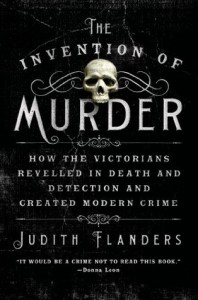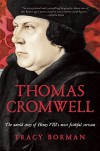SusannaG - Confessions of a Crazy Cat Lady
Just another GR refugee. Other than that, I had a stroke in 2004, and read almost anything I can get my hands on, though I have a particular weakness for history, mystery, and historical fiction.
Currently reading
The Invention of Murder

The title "The Invention of Murder" is a little exaggerated - Judith Flanders isn't arguing that there were no murders before the 19th century, or anything like that. Instead, she relates (in a great deal of detail) how obsessed the average inhabitant of Victorian Britain was with murders safely removed from their own lives.
There are a good number of cases discussed here, from the Ratcliff Highway murders (in two weeks two London households were murdered - which apparently was how many people in the entire country would have been murdered in an ordinary year) through the Poison Panic of the 1840s, to Jack the Ripper.
One reason she suggests that the reading materials were all about the murders was that there were so few of them - their murder rate, I believe, she says was about half that of modern Canada, which is generally considered a low rate today. (The rate of the modern U.S. is bad, and truly massive compared to that of Victorian Britain.)
No matter the reason, details (accurate or made-up) of murder made up the bulk of the newspapers, and before the 1850s (when newspapers reduced in price substantially), the broadsides as well. And then they would become grist for the mill of melodramas, "penny dreadfuls" (and their predecessors, the "penny bloods"), puppet shows, and other ephemera. Not to mention the novels, from The Moonstone and Dracula to Bleak House, Middlemarch, and Sherlock Holmes.
I can see how some would tire of the number of details of the crimes, and then the discussion of what these stories turned into when fictionalized, but I found it fascinating.
















 11
11
 5
5